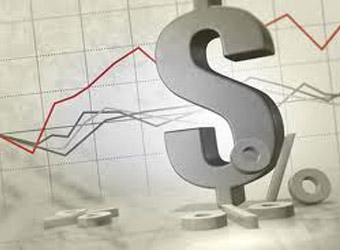U.S. dollar pulled away from 4-1/2-month lows against a currency basket on Wednesday after solid data backed expectations for more interest rate hikes this year.
Sterling was knocked by Britain triggering its exit from the European Union.
The dollar index, which tracks the greenback against six major rival currencies, edged up slightly to 99.751.
It managed to crawl off a low of 98.858 plumbed earlier this week, its weakest level since November 11, in the wake of U.S. President Donald Trump’s failed healthcare reform bill.
“‘Trump’s trade is still alive after all. It was too early to declare it dead with the failure of the healthcare reform bill to pass,” said Ayako Sera, senior market economist at Sumitomo Mitsui Trust.
“As long as the U.S. economy shows signs of strength, the dollar will remain strong, but since an overly strong dollar also has some downside for the U.S. economy, there will be dollar corrections,” she said.
The healthcare failure reform raised doubts that Trump would be able to carry out his fiscal stimulus and tax cuts, and pressured the dollar to 110.11 yen, its lowest since November 18. It last stood at 111.22 yen, up slightly on the day.
“I think the optimism about ‘Trumponomics,’ against the failure to pass the Obamacare reform bill, is still dominating the dollar/yen market,” said Masafumi Yamamoto, chief forex strategist at Mizuho Securities in Tokyo.
“The dollar has been quite resilient, and this shows that optimism and hope among market participants remains, that some things will happen under the Trump administration,” Yamamoto said.
U.S. Federal Reserve Vice Chairman Stanley Fischer also gave the dollar a lift as he said in a television interview that two more increases to U.S. overnight interest rates this year seemed “about right.”
The Fed raised rates in March, and a majority of the central bank’s policymakers foresee at least two more increases this year.
Fed Governor Jerome Powell said on Tuesday that the collapse of the healthcare reform bill had made the U.S. central bank’s job harder as it tried to anticipate which set of policies would pass.
Reinforcing rate hike expectations, the Conference Board said U.S. consumer confidence index hit 125.6 in March, surpassing expectations for a reading of 114, and much higher than 116.1 in February.
The March level marked the highest since December 2000.
The data pushed up U.S. Treasury yields, further bolstering the dollar’s appeal. The yield on benchmark 10-year notes rose to 2.421 percent in Asian trading, from its U.S. close of 2.409 percent on Tuesday.
Sterling, meanwhile, wallowed at one-week lows, down 0.3 percent at $1.2412 as investors braced for British Prime Minister Theresa May’s move later on Wednesday to formally file paperwork to leave the European Union.
Investors were also assessing news that Scotland’s parliament had backed a vote for independence even though the British government said it would not enter independence negotiations with Scotland.
Further weighing on the pound, Bank of England interest rate-setter Ian McCafferty highlighted a weak outlook for the economy on Tuesday, and said he did not know if he would vote to increase borrowing costs at the next BoE meeting in May.
The euro was steady on the day at $1.0813.
Source: Reuters


